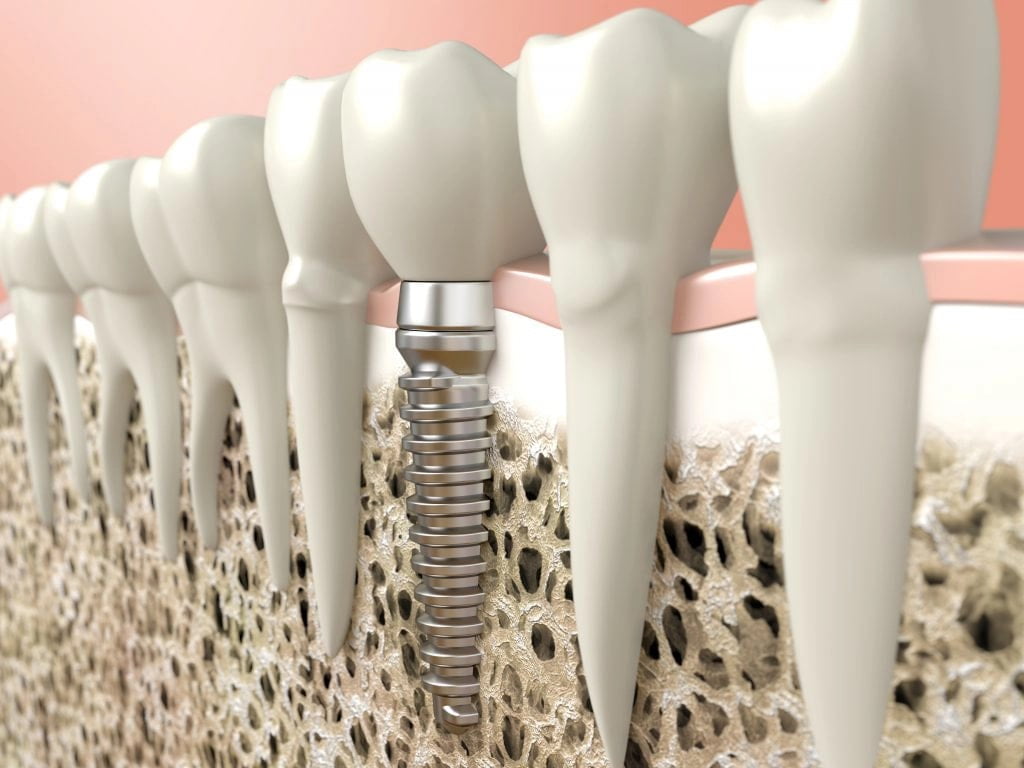Modern dental implants are an advanced and permanent solution for tooth loss that restores your natural dental function and resolves every cosmetic issue affecting the tooth. Like any permanent solution for a pressing personal and medical need, dental implants in Lethbridge require a commitment to a healthy lifestyle and investments of time and money.
We are sometimes asked to explain the factors that go into and influence the investment required by certain dental procedures. The cost of dental implants is a good example. Here, we’ll break down the elements of modern titanium dental implants that contribute to the cost — and the lifelong payoff.
A team of experts will be working for you
One of the most significant components of the cost of dental implants in Lethbridge is the team of professionals who work with you to solve your tooth loss. You may only see one or two of those people at a time, but there’s a full team that works together to provide you with those implants. That team includes the surgeon, dentist, dental assistant, dental hygienist, laboratory technicians, and even the administration staff.
Each team member has a specific and essential role to play in planning for, preparing for, designing, building, placing, and maintaining titanium, abutment, and final restoration that achieves your restorative and cosmetic goals.
Cost of materials
Implants are not off-the-shelf aftermarket dental parts akin to auto parts. Rather, they’re custom designed and custom manufactured pieces made from specially selected and developed materials. The main materials for implant posts and abutments are Titanium or Zirconia. For the restoration itself — a dental crown, for example — the most common materials are metal, ceramic, resin, or PFM (porcelain fused to metal).
Selecting from the range of materials is a large part of the professional team’s responsibility, and takes time — another element of the required investment — while they consider: what type of restoration you ultimately need, where the implant will be placed in your mouth, whether your jaw or adjacent teeth will need other treatment to sustain an implant, and whether you’ve ever had any adverse experiences with any of the available materials.
Assessing and deciding
The financial and professional investments in dental implants do not begin with the implant procedure. By the time you receive your implant, the professional team will have spent a considerable amount of time taking and reviewing detailed images, reviewing your prior medical and dental history, and developing an appropriate treatment plan.
Sometimes that treatment plan will include recommendations for other treatments to improve your overall oral health or to address infection or bone loss to ensure that your implant will be a long-term solution. Each of those unique factors — unknowable in advance or in the abstract — affect the overall cost of implant procedures (in time and money).
While implants are a powerful and versatile solution, not every implant option is appropriate for every patient’s needs. Assessing whether you are a good candidate is important, and time is well invested in your outcome.
We understand the financial factors that go into important medical and dental decisions and are here to support you as you acquire and work through all the important information. One factor that you should consider as early as possible in your decision-making process is whether your implant (and related) procedures may be covered by private, employer-based, or other types of insurance. For those questions, you should contact your insurance representative or dentist.
For any questions about whether implants are appropriate for your personal needs and financial resources, reach out to a dental clinic in Lethbridge. We’d love the chance to answer every one of them or point you in the best direction for the best information.
